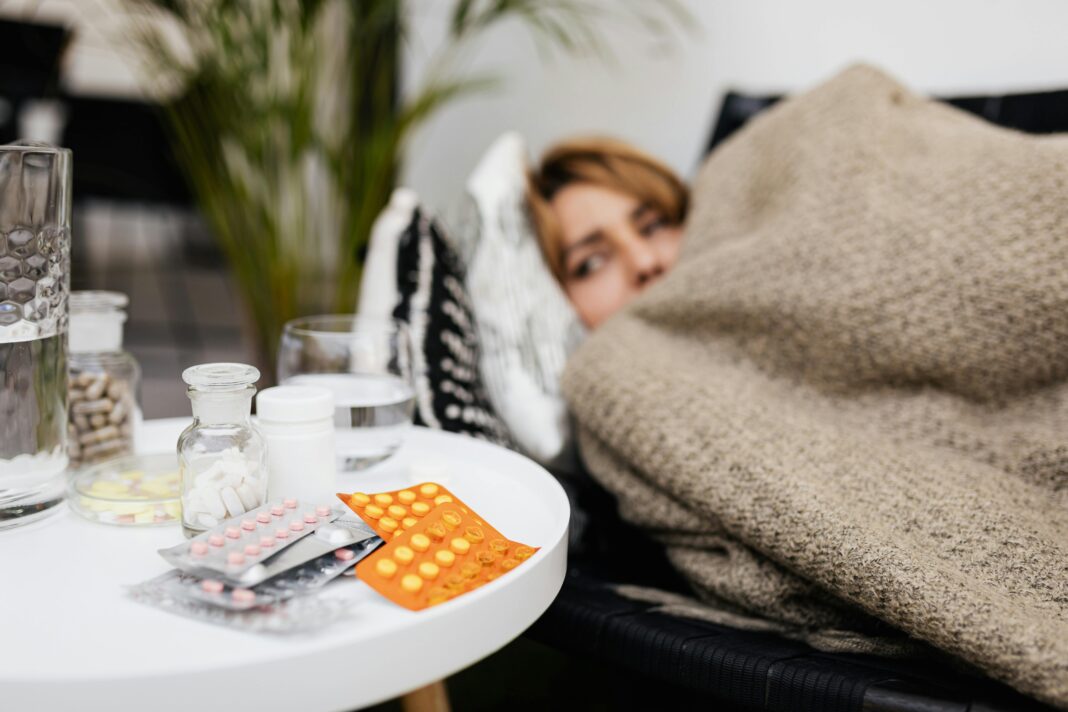Sleep problems are common among individuals with Attention-Deficit/Hyperactivity Disorder (ADHD). Many people with ADHD struggle with falling asleep, staying asleep, or waking up feeling unrested. Research suggests that up to 75% of children and adults with ADHD experience some form of sleep disturbance. But what exactly links ADHD and sleep disorders? This article explores the connection, underlying causes, and practical solutions for better sleep.

How ADHD Affects Sleep
ADHD is primarily known for symptoms like inattention, hyperactivity, and impulsivity. However, its impact on sleep is often overlooked. Here’s how ADHD contributes to sleep disturbances:
1. Delayed Sleep Phase Syndrome (DSPS)
Many individuals with ADHD have a delayed circadian rhythm, meaning their internal body clock runs later than usual. This makes it harder to fall asleep at a conventional bedtime, leading to chronic sleep deprivation.
- Symptoms: Difficulty falling asleep before 1-2 AM, extreme grogginess in the morning, and improved alertness late at night.
- Why It Happens: ADHD affects the brain’s regulation of melatonin, the hormone responsible for sleep-wake cycles.
2. Restless Sleep and Frequent Wakings
People with ADHD often experience fragmented sleep, waking up multiple times during the night. This can be due to:
- Hyperactive thoughts: Racing minds make it difficult to relax.
- Physical restlessness: Tossing, turning, or even sleepwalking.
- Sensory sensitivity: Small disturbances (like noise or light) can easily wake them.
3. Sleep-Disordered Breathing (SDB)
Studies show a higher prevalence of sleep apnea and other breathing-related sleep disorders in people with ADHD. Symptoms include:
- Loud snoring
- Gasping for air during sleep
- Daytime fatigue
4. Nightmares and Sleep Terrors
ADHD is associated with more intense dreams and nightmares, possibly due to heightened brain activity during sleep.
Why ADHD Medications Can Disrupt Sleep
Stimulant medications (like Ritalin or Adderall) are commonly prescribed for ADHD but can interfere with sleep if not managed properly.
How Stimulants Affect Sleep
- Delayed Sleep Onset: Stimulants increase alertness, making it harder to fall asleep.
- Reduced REM Sleep: This can lead to less restorative sleep.
- Rebound Hyperactivity: As medication wears off, some experience increased restlessness.
Tips for Managing Medication Side Effects
- Take medication earlier in the day.
- Avoid caffeine in the afternoon.
- Discuss non-stimulant options (like guanfacine) with a doctor if sleep problems persist.
Common Sleep Disorders Linked to ADHD
1. Insomnia
- Difficulty falling or staying asleep is widespread in ADHD.
- Causes: Overactive mind, anxiety, or medication side effects.
2. Restless Legs Syndrome (RLS)
- An uncontrollable urge to move legs, especially at night.
- Linked to low iron levels, which are more common in ADHD.
3. Narcolepsy
- Excessive daytime sleepiness and sudden sleep attacks.
- Shared brain chemistry (dopamine dysfunction) with ADHD.
How to Improve Sleep with ADHD
1. Establish a Consistent Sleep Routine
- Go to bed and wake up at the same time daily.
- Wind down with calming activities (reading, meditation).
2. Optimize Your Sleep Environment
- Keep the room cool, dark, and quiet.
- Use weighted blankets for sensory comfort.
3. Limit Screen Time Before Bed
- Blue light from devices suppresses melatonin.
- Try a digital detox 1-2 hours before sleep.
4. Exercise Regularly
- Physical activity helps regulate energy levels and improve sleep.
- Avoid intense workouts close to bedtime.
5. Consider Behavioral Therapy
- Cognitive Behavioral Therapy for Insomnia (CBT-I) can help retrain sleep patterns.
FAQs About ADHD and Sleep Disorders
1. Does ADHD cause sleep problems, or do sleep problems worsen ADHD?
Both. ADHD disrupts sleep, and poor sleep exacerbates ADHD symptoms, creating a vicious cycle.
2. Can treating sleep issues improve ADHD symptoms?
Yes. Better sleep can lead to improved focus, mood, and impulse control.
3. Are melatonin supplements safe for ADHD?
Melatonin can help regulate sleep, but consult a doctor for proper dosage.
4. Do all people with ADHD have sleep disorders?
No, but a significant majority experience some form of sleep disruption.
5. Can ADHD medication make sleep problems worse?
It can, especially if taken late in the day. Timing adjustments often help.
Final Thoughts
ADHD and sleep disorders are deeply connected. Understanding this link is crucial for managing symptoms effectively. By adopting better sleep hygiene, adjusting medications, and seeking professional help, individuals with ADHD can achieve more restful nights and improved daytime functioning.
If sleep problems persist, consult a sleep specialist to explore tailored solutions. Better sleep is possible—even with ADHD.

